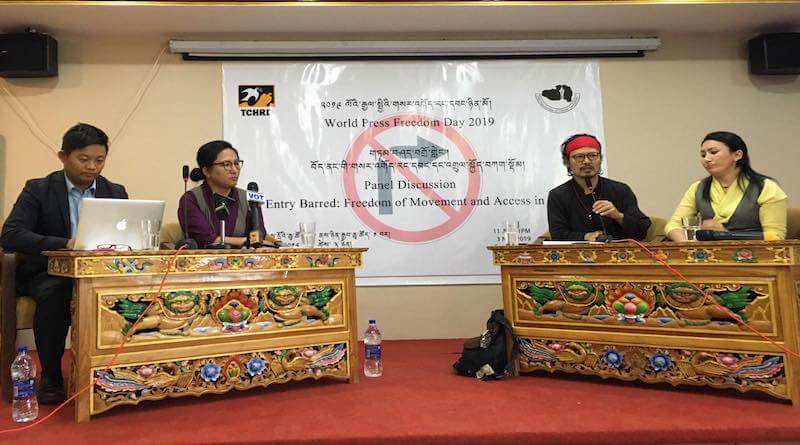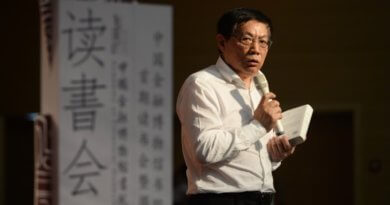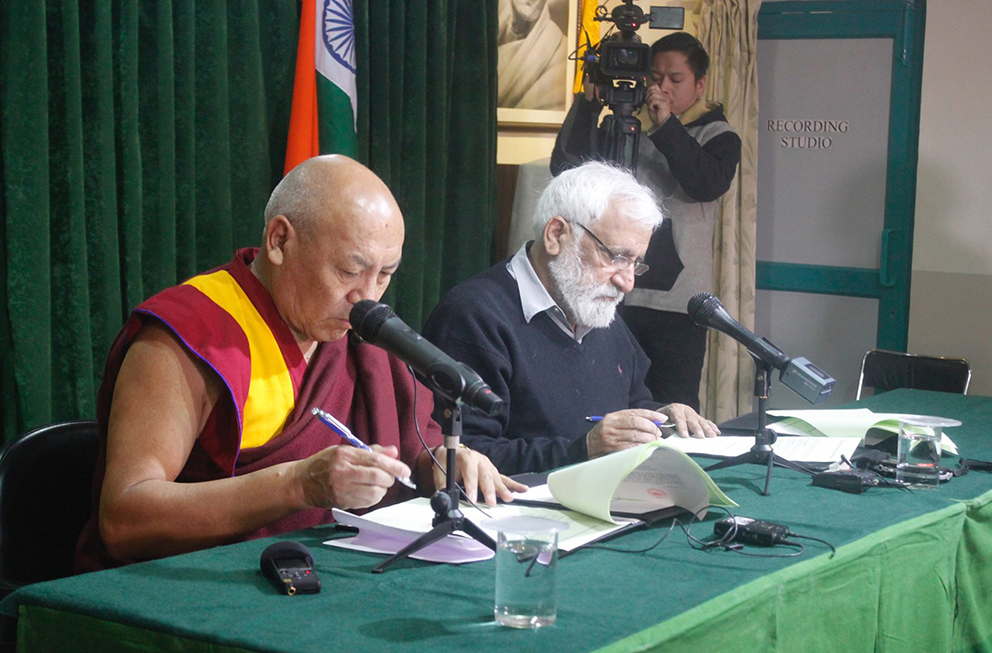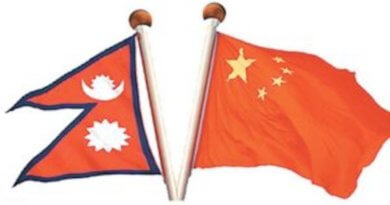World press freedom day marked in Dharamsala

DHARAMSALA, 3 May: China must allow human rights monitors and journalists to make independent trips to Tibet without minders, Tibetans demand on World press freedom day.
The Tibetan Center for Human Rights and Democracy (TCHRD) and Association for Tibetan Journalists (ATJ) made the demand while observing the 26th World Press Freedom Day here in the exile headquarter of the Tibetan people, an annual event celebrated across the world.
The Dharamsala based rights group and the ATJ urged the international community to engage with China and exert pressure on China to remove all policies and practices that violate the right to freedom of movement and travel in Tibet stated in their joint press release.
“Chinese authorities must allow human rights monitors and journalist to make independent trips to Tibet without government minders,” the statement read.
The duo has organised a panel discussion titled ‘Entry Barred: Freedom of Movement and Access in Tibet’ to observe the World Press Freedom Day. The speakers of at the event include Tenzin Peldon, editor-in-chief at Voice of Tibet, Pema Tso, editor of Tibet Times, and Mr Tenzin Dalha, a research fellow at Tibet Policy Institute.
The event began with the screening of pre-recorded video interviews with Mr Paul Mooney, an award-winning veteran journalist with 18 years of experience working as a correspondent for South China Morning Post in Beijing; Ms Dolma, a former reporter with Qinghai TV; and playwright Mr Abhishek Majumdar.
Tenzin Peldon spoke on the challenges faced by the media in exile and the difficulty in accessing and flow of news from Tibet while Pema Tso highlighted the censorship of press freedom in Tibet and Tenzin Dalha spoke about internet censorship and growing surveillance inside Tibet. The session was moderated by Tibetan writer and activist Tenzin Tsundue.
TCHRD and ATJ maintained that due to China’s systematic restriction and control on the freedom of movement and travel, Tibet has become one of the most difficult places to access in the world. Human rights monitors have not been allowed to visit despite repeated requests from international bodies in light of the deteriorating human rights situation in Tibet.
Tibet has been ranked the second least free place in the world for the past several years by Freedom House and the Beijing-based Foreign Correspondents’ Club of China in its latest survey published in March this year, reported serious obstacles to report from Tibet that prohibits them from obtaining accurate information about the situation in Tibet.
“No democracy is complete without access to transparent and reliable information,” the UN Secretary-General Antonio Guterres has said in a statement issued to observe the day.
Additionally, off the 180 countries scored by the Reporters Without Borders (RSF) for press freedom in its 2019 press freedom index, China who was ranked 176th went down a slot to 177th this year.
World Press Freedom Day serves as a reminder of the significance of free press in a safe and functioning society and acts to honour the journalists who have lost their lives while supporting a free press. Freedom of expression is a basic human right as listed in the Universal Declaration of Human Rights, Article 19.
It was initially arranged in 1993 by the United Nation General Assembly as an initiative to reflect upon the freedom of press internationally. The day was marked on the jubilee of the Declaration of Windhoek, which is a statement of fundamentals of press freedom assembled in 1991 by the African Journalists to encourage a pluralistic and independent African press.






